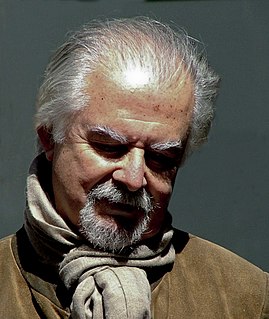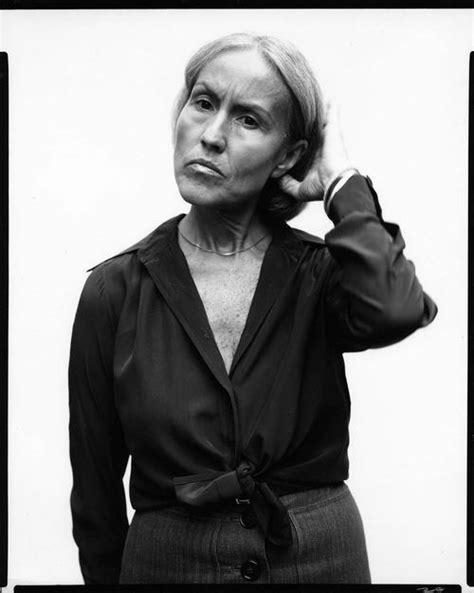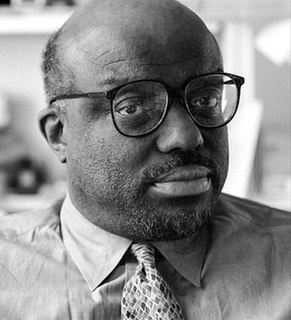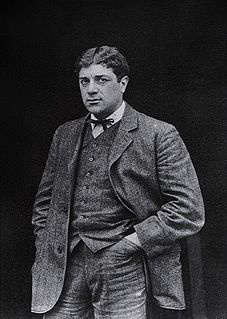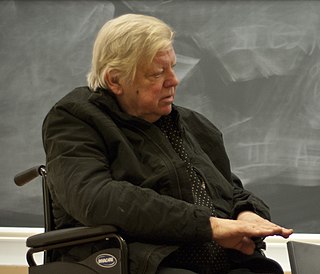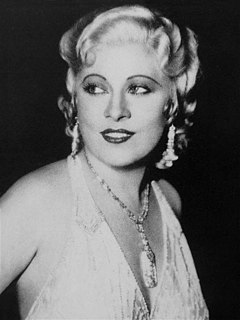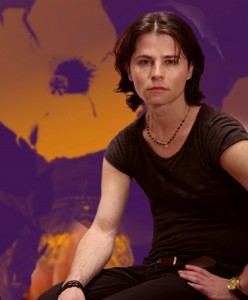Top 308 Picasso Quotes & Sayings - Page 5
Explore popular Picasso quotes.
Last updated on December 22, 2024.
Sure, I can talk like you, but I choose not to, It's like an art, you know? Picasso had to prove to the world he could paint the right way, before he goes putting both eyes on the side of a face... See if you paint wrong because that's the best you can do, you just a chump. But you do it because you want to? Then you're an artist...You can take that to the grave and dig it up when you need it.
I have seen Colonial churches since I was very small, Colonial painting and polychrome sculpture. And that was all I saw. There was not a single modern painting in any museum, not a Picasso, not a Braque, not a Chagall. The museums had Colombian painters from the eighteenth century and, of course, I saw Pre-Columbian art. That was my exposure.
As an artist, I never wanted to be fettered by gender nor recognized or defined as a female poet, musician or singer. They don't do that with men - nobody says Picasso, the male artist. Curators call me up and say, "We want your work to be in a show about women artists," and I'm like, why? For Christ's sake, do we have to attach a gender onto everything?
I believe Picasso's success is just one small part of the broader modern phenomenon of artists themselves rejecting serious art- perhaps partly because serious art takes so much time and energy and talent to produce-in favor of what I call `impulse art': art work that is quick and easy, at least by comparison.
Look at all the stuff the Existentialists did. You can start with [Pablo] Picasso, you know, and then Francis Bacon and other guys like that. What they were doing is depicting suffering. And that's exactly what a demon is, he's pretending that he isn't. So he can get more people down there. You know, misery loves company, that's the whole thing. So that's basically the pitch that I'm working on.
All of a sudden I got a vision of Guernica - Pablo Picasso's painting, which is one of my all-time favorite paintings in the world. I remember reading that it was very controversial at the time - some people said even used the word "childlike drawing" - and all of a sudden I thought, "This is like Guernica in Los Angeles!" And then it all made sense to me. It was all the elements that are the Southland.
I will never get tired of looking at works by Pablo Picasso. I will never get tired of looking at work by Francis Bacon or Henry Moore or Francisco Goya. You cannot tire of the work these people have made because you can look it over and over again - the same thing - and always see something different.
I would like to know what politicians eat on the campaign trail, what Picasso ate in his pink period, what Walt Whitman ate while writing the verse that defined America, what mid-westerners bring to potlucks, what is served at company banquets, what is in a Sunday dinner these days, and what workers bring for lunch.
I don't happen to approve of plastic surgery. I think God put plastic surgeons on this earth for good reasons - people get burned or people might have a nose like Pinocchio and that has to be fixed. But to just chop yourself up to look a few years younger? You could come out looking like a Picasso picture. And you still have your hands to contend with. If you're 70, no one is going to think you're 35. The whole concept is kind of stupid.
No one would want to pay a penny for an empty canvas by me. But it would be quite another if the empty canvas were signed by a great artist. I would be surprised if an empty canvas by Picasso or Matisse signed and inscribed with the words, 'I wanted to paint such and such on this canvas, but did not do so,' would not fetch thousands... After all, with an empty canvas, the possibilities are limitless, and so perhaps is the cash.
The fact that for a long time Cubism has not been understood and that even today there are people who cannot see anything in it means nothing. I do not read English, an English book is a blank book to me. This does not mean that the English language does not exist. Why should I blame anyone but myself if I cannot understand what I know nothing about?" -Pablo Picasso.
Memories are like a still life painted by ten different student artists: some will be blue-based; others red; some will be as stark as Picasso and others as rich as Rembrandt; some will be foreshortened and others distant. Recollections are in the eye of the beholder; no two held up side by side will ever quite match.
perhaps I possess a certain Midwestern sensibility that I inherited from my mother and her parents, a sensibility that Warren Buffet seems to share: that at a certain point one has enough, that you can derive as much pleasure from a Picasso hanging in a museum as from one that's hanging in your den, that you can get an awfully good meal in a restaurant for less than twenty dollars, and that once your drapes cost more than the average American's yearly salary, then you can afford to pay a bit more in taxes.
People can see you on TV sloshing paint around with big four-inch brushes, and I learned to talk to camera in a friendly voice, not talking down to people, just explaining what I was doing. People like Picasso, Van Gogh, and Rembrandt did not have a weekly TV programme where people could see them painting.
High culture is nothing but a child of that European perversion called history, the obsession we have with going forward, with considering the sequence of generations a relay race in which everyone surpasses his predecessor, only to be surpassed by his successor. Without this relay race called history there would be no European art and what characterizes it: a longing for originality, a longing for change. Robespierre, Napoleon, Beethoven, Stalin, Picasso, they're all runners in the relay race, they all belong to the same stadium.
You see Michelangelo and Picasso and you read literature. I had some innate inchoate yearning for that, but I never really saw where I would fit in. That's called art. And then something happened to pop music, which is that it became art under the hand of the Beatles, the Stones, and Bob Dylan and some other people.
We hated Bauhaus. It was a bad time in architecture. They just didn’t have any talent. All they had were rules. Even for knives and forks they created rules. Picasso would never have accepted rules. The house is like a machine? No! The mechanical is ugly. The rule is the worst thing. You just want to break it.
I came down successfully through Picasso and Braque, down through Pollock, I guess, but I began to stop at Franz Kline and the Abstractionists. I like their design, brilliant design, marvelous color layers. But I don't find any human content there. I'm from an old school, and painting has to have human content for me.
I look at people like Picasso and Da Vinci and Escher and Miles Davis, and they'll write or paint that one definitive masterpiece of maybe 50 that they have that's really trying to go outside the box, trying to do something that's tough. And then when you accomplish it, you look back and go, 'Yeeaaaah - masterpiece.'
War and culture, those are the two poles of Europe, her heaven and hell, her glory and shame, and they cannot be separated from one another. When one comes to an end, the other will end also and one cannot end without the other. The fact that no war has broken out in Europe for fifty years is connected in some mysterious way with the fact that for fifty years no new Picasso has appeared either.
I think there's a real problem if you're making a film - some people have done whether it be about Jackson Pollock or about Picasso - it's difficult for actors, because they have to impersonate a person whose image is very strong in our memories or in our consciousness. It's something that's very tricky, I think.
I think my most famous was 'Poco's Legend.' It's a white album with a simple line drawing of a horse. It almost has a Picasso feel to it. I remember that Rusty Young, the lead singer of the band, said, 'I want you to draw a horse for the song 'Legend,' which is about a phantom spirit horse. I want you to do it in several lines.'
I was a high school student like Picasso. I was a little eccentric, but I had high ideals. I wanted to get along well with girl, but when I met them face-to-face, I acted cold toward them. I was always in the art room drawing, I wanted to attract someone's interest. I thought that if I got good at drawing I might be able to establish a connection with the world.
I've always been fascinated by Picasso and how he would look at a single image through multiple perspectives and from separate moments in time. He would look at a woman's face and he would see almost a three-dimensional look even though it was a flat canvas. I thought, well why couldn't we do the same thing with a football play?
I didn't understand art, until one day Tom Brady took me to the museum, and we looked at the Picasso, and he said, 'Rob, that's a touchdown.' We looked at the Rembrandt and Tom said, 'Rob, that's another touchdown.' We looked at the Vermeer and Tom said, 'Rob, that's another touchdown.' And I said, 'No, Tom, that's just a field goal.'
If Melissa Miller were an artist, she would have painted the world in vicious streaks of red. Nothing like Picasso's rose period, all soft and cheerful and so optimistic that it made you want to puke. Missy's red phase would have been brutal and bright enough to cut your eyes. Missy's art would have been honest.
In 1966, while working on a feature about a Picasso exhibition at the Tel Aviv Museum of Art, I recorded the pre-opening preparations and observed a moment: One of the cleaners stopped, puzzled, in front of the Picassos. I think that this is an image that can be universally understood, but with a grain of salt. I never chose this image in edits before because it seemed to me that it felt posed-the composition was a little too perfect. But, believe me, it was a lucky moment.
The extent of his influence across jazz, across American music, and around the world has such continuing stature that he is one of the few who can easily be mentioned with Stravinsky, Picasso and Joyce. His life was the embodiment of one who moves from rags to riches, from anonymity to internationally imitated innovator. Louis Daniel Armstrong supplied revolutionary language that took on such pervasiveness that it became commonplace, like the light bulb, the airplane, the telephone.
Ultimately, it comes down to taste. It comes down to trying to expose yourself to the best things that humans have done and then try to bring those things into what you're doing. Picasso had a saying: good artists copy, great artists steal. And we have always been shameless about stealing great ideas, and I think part of what made the Macintosh great was that the people working on it were musicians and poets and artists and zoologists and historians who also happened to be the best computer scientists in the world.
I shall never forget what I saw at the Museum of Modern Art: in a spotless schoolroom, fifty little girls painting away at tables covered with brushes, pots, tubes, bowls, staring into space and sticking out their tongues like the clever animals that ring a bell, tongues lolling and eyes vague. Teachers supervise these young creators of abstract art and slap their wrists if what they paint represents something and dangerously inclines toward realism. The mothers - still at the Picasso stage - are not admitted.
I don't happen to approve of plastic surgery. I think God put plastic surgeons on this earth for good reasons - people get burned or people might have a nose like Pinocchio and that has to be fixed. But to just chop yourself up to look a few years younger? You could come out looking like a Picasso picture.
The whole Renaissance tradition is antipethic to me. The hard-and-fast rules of perspective which it succeeded in imposing on art were a ghastly mistake which it has taken four centuries to redress; Cezanne and after him Picasso and myself can take a lot of credit for this. Scientific perspective forces the objects in a picture to disappear away from the beholder instead of bringing them within his reach as painting should.
I can't honestly say where the inspiration for my work came from. I think it came from reading. It came from texts, from Nietzsche, Schopenhauer, it came from, you know, Jean-Paul Sartre. These are the ideas that got me worked up and inspired. It wasn't so much the visual things that inspired me. Although, of course, there were plenty of painters in history that I admired all the way from Brueghel to Goya, to Picasso - because everything visual stimulates me.
As an artist you have to find something that deeply interests you. It's not enough to make art that is about art, to look at Matisse and Picasso and say, how can I paint like them? You have to be obsessed by something that can't come out in any other way, then the other things - the skill and technique - will follow.
More people saw me than saw Napoleon, Lincoln and Cleopatra. I was better known than Einstein and Picasso. ... I changed the fashion of two continents. The style of the Gay Nineties became the rage ... women were trying to walk and talk like me. Women became more sex-conscious - sex was out in the open and fun.
The first half of the 20th century belongs to Picasso, and the second half is about photography. They said digital would kill photography because everyone can do it, but they said that about the box brownie in 1885 when it came out. It makes photography interesting because everyone thinks they can take a picture.
There is a childlike side in the work of the Dadaists, Klee, Miró, Calder and Picasso. I am trying to make things that are very, very serious, and what comes out of it is things that are quite friendly, gay, and sometimes even amusing. [Chaim] Soutine tried to work like Rembrandt, and yet there is nothing of Rembrandt in his pictures.
For me narcissism is not about money. For me, narcissism is something so romantic and something so human. Everybody is a narcissist. Some people admit it and some people don't. As an artist, it's important to be a narcissist. Look at Picasso, look at Warhol.... As an artist, you can get away with a lot of things that normal people cannot.
Picasso's superhuman gift for draftsmanship might have made him lazy about pursuing the full potential of color. It was not unusual for him to build a composition by first outlining figures and objects in black and then filling the interstices in a perfunctory manner that can put one in mind of a museum-shop coloring book.
Think about it: you've already related it down to something that somebody else can understand. If art relates to something - it's like Picasso, it's like Mondrian - it's not. Art's supposed to be what it is. Using a reference of art history might help for some kind of sales, but it doesn't really help anybody. Art is what it is; it cannot be footnoted, until it enters the world. Then it has a history. Then the footnotes are the history, not the explanation.
It took the Metropolitan Museum of Art nearly 50 years to wake up to Pablo Picasso. It didn't own one of his paintings until 1946, when Gertrude Stein bequeathed that indomitable quasi-Cubistic picture of herself - a portrait of the writer as a sumo Buddha - to the Met, principally because she disliked the Museum of Modern Art.
When I was setting out to be an artist, I said: If I can just produce one work that some people think is good, if I can become an obscure cult artist, that's all I want. Well, I attained that. I'm an obscure cult artist, and I think now, Why didn't I say I want to be another Picasso or something? What other options were open to me? But I was convinced I couldn't achieve great things because I don't have a steady-state mind.


